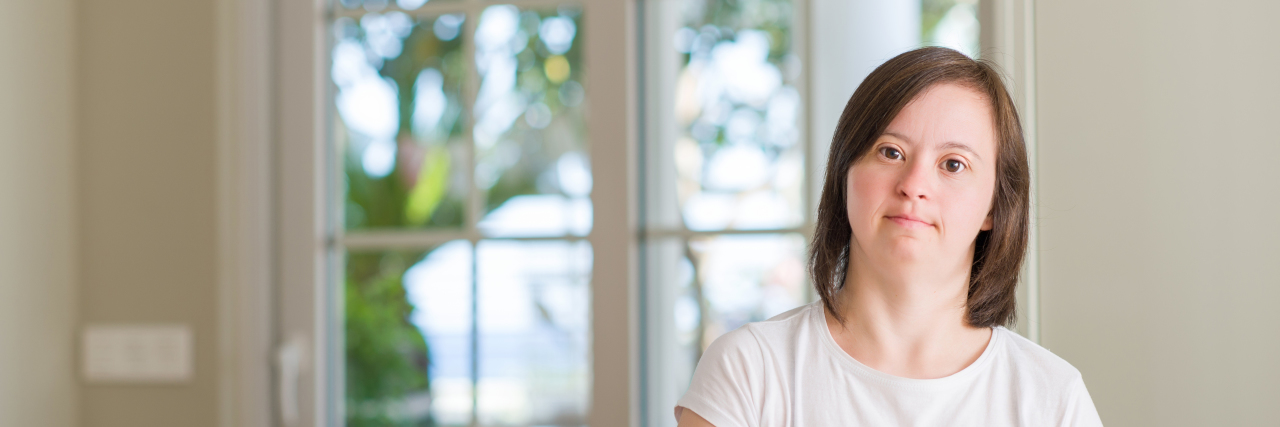Stop Leaving People With Intellectual Disabilities Out of the Conversation
When our governors talk about COVID-19 deaths in long-term care facilities and among marginalized groups, they often don’t mention the devastation that has overwhelmed group homes housing people with intellectual disability.
When we praise doctors and nurses, we often omit the essential and underpaid workers and aides who care for people with intellectual disabilities.
When the general population climbs onto their soapboxes to preach healthcare disparity among marginalized groups, we easily overlook people with physical and intellectual disabilities.
When we collectively address police brutality, we fail to recognize how many victims are those with intellectual disabilities.
I personally experienced intellectual disability for the first time in 2015 when we had our daughter, who has Down syndrome, and physical disability for the first time in 2017 when we had her baby brother, who has a congenital upper limb difference. Few things can make a person feel lonelier and more isolated than the devastating realization of an “us vs. them” mentality when suddenly you are thrust from the “us” to the “them” overnight. I had an awakening that I had been an “us” just as many people around our country are realizing we are facilitators of societal racism without ever having felt an ounce of hatred in our hearts.
Intellectual disability is one of the quietest groups in society because those with it and their carers are so often dependent on others for help, and can be disproportionately grateful when encountering an outstretched hand. If there is no family to assist, particularly when people turn 21 years old, then the government must step in. If the government doesn’t properly provide — as it often doesn’t, as many voters don’t care about funding healthcare for those who cannot afford it themselves — then resources become scarce and non-profits might only be able to reach bare minimum standards.
I do not want to raise my children in a country that can only meet bare minimum standards for families who are not from privilege. I am tired of reading about political groups who are anti-abortion and anti-universal healthcare. I am tired of the effort it takes to overcome the conditioning that public assistance, which provides my children with their very best possible lives, is a favor, not a human right.
There are many voices that have not yet been heard. We don’t have time to be quiet while innocent lives are being lost. The first groups Hitler aimed to extinguish were those with intellectual and physical disabilities, who are often viewed even now, even in the United States of America, as drains on our society. I would dare anyone who believes this to encounter the love and compassion a person with Down syndrome can bestow on the most undeserving of souls.
Getty image by Aaron Amat.

